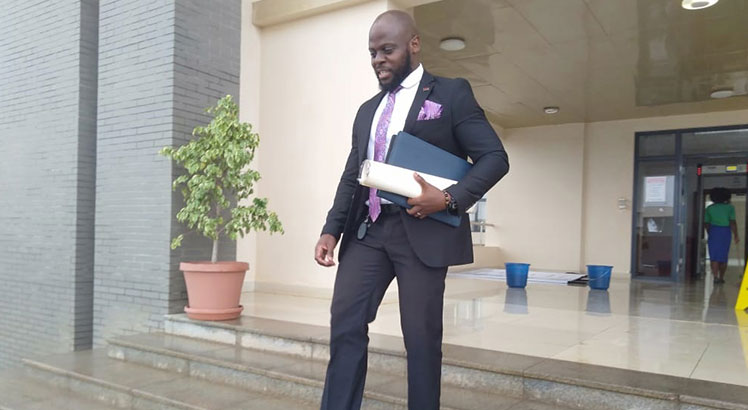Uganda court hailed for annulling anti-gay law

Sexual minority rights activist Gift Trapence has hailed the Ugandan High Court ruling which annulled the anti-gay law enacted by Parliament in 2013, saying Malawi has an opportunity to borrow a leaf from that landmark ruling.
In an interview on Wednesday, Trapence, who is Centre for the Development of People (Cedep) executive director, said it was time Malawi Government stopped playing double stands on the issue and start implementing its commitment to universal human rights dictates.
“The Constitutional Court decision to overturn the law that called for a 14-year jail term for a first conviction and imprisonment for life for aggravated homosexuality is victory to African countries, including Malawi as well. It is victory to equality and justice for all,” said Trapence.
“Such draconian laws have no place in a democratic society and tend to reinforce discrimination and violence against lesbian, gay, bisexual and transgender people. Such laws hinder access to health services, including HIV prevention, treatment, care and support services,” he said.
He appealed to the Democratic Progressive Party (DPP)-led government to live up to its commitment to meet international human rights norms to protect all Malawians equally regardless of their sexual orientation by, among other things, repealing laws that criminalise consensual same sex.
The Ugandan ruling comes at a time when the Attorney General’s office has appealed against a High Court ruling that a case in which some sexual minority convicts want sodomy laws invalidated, does not need certification by the Chief Justice before referring it to the constitutional court.
Filing fresh appeal grounds, senior state advocate Apoche Itimu argues that the High Court judge erred in law and that the proceedings should be referred to the Chief Justice for certification in line with Section 9 (2) of the Courts Act and Rule 8 of the Courts (Procedure on interpretation or application of the Constitution) Rules.
Says Itimu: “It is submitted that the learned judge erred in law in holding that certification by the Chief Justice is not mandatory prior to referring a matter to be heard as a constitutional matter under Section 9(2) of the Courts Act.”
“It is also submitted that the failure by the lower Court in not having complied with Section 9(3) as read with Section 9(4) of the Courts Act is an irregularity that can only be cured by having the matter certified by the Chief Justice and following the procedure as laid down under Rule 8 of the Courts Rules.”
Itimu also argues that some of the matters which the respondents have included in their application to be heard by the constitutional court involve sexual abuse of minors as well as adults, as such, they could not be treated as having violated rights of consenting adults who wish to engage in homosexual activity.






Trapence appears not to know what he is talking about.
1.–Nowhere in Uganda’s Anti Homosexuality Act (AHA) is there an offence which, upon conviction, makes a person liable to imprisonment for fourteen years. The offence of simple, first-offence “homosexuality” could have resulted in imprisonment for life under the new act.
2.–It is true that the Ugandan Constitutional Court annulled the AHA. However, the Ugandan Penal Code has a couple of sections similar to what we have in Malawi, so homosexual acts are still criminal offences there.